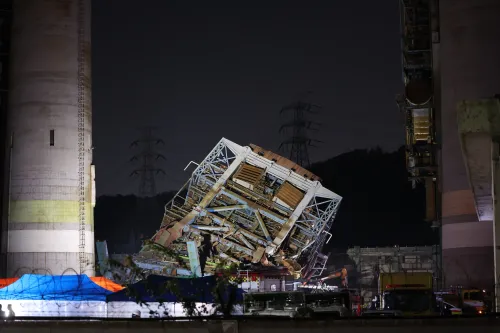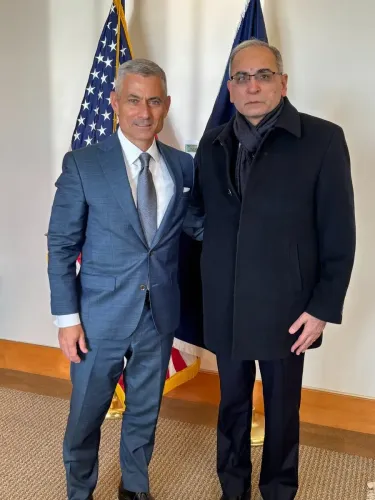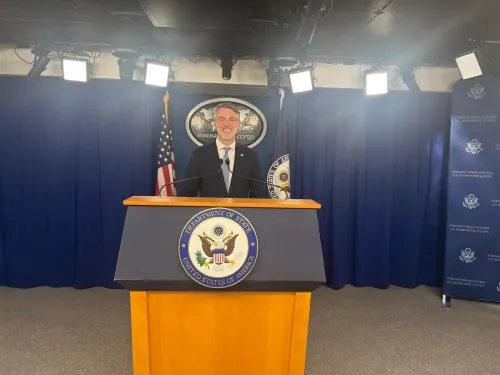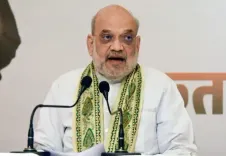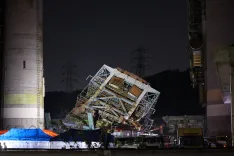Is North Korea's Kim Open to Talks with the US Without Denuclearisation Demands?
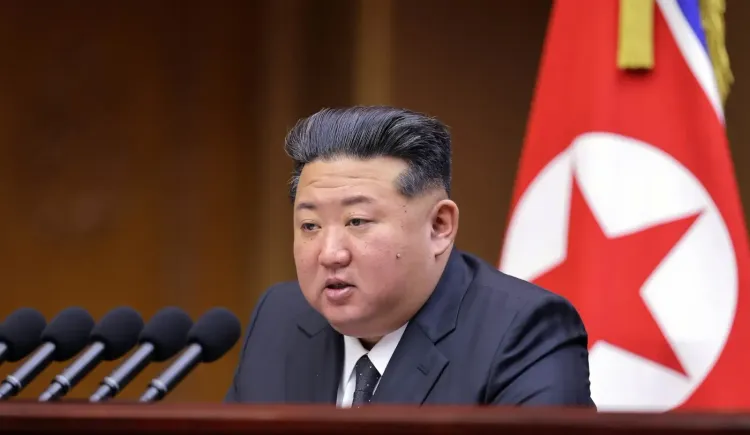
Synopsis
Key Takeaways
- Kim Jong-un is willing to talk with the US if denuclearisation demands are removed.
- The North will not relinquish its nuclear arsenal.
- Relations with South Korea remain hostile, with no interest in unification.
- Trump and Kim may meet during the upcoming APEC summit.
- Kim's comments indicate a strategic positioning in international diplomacy.
Seoul, Sep 22 (NationPress) North Korean leader Kim Jong-un has expressed that he holds a "good memory" of US President Donald Trump and is willing to engage in discussions with the United States, provided that Washington relinquishes its demand for the North's denuclearisation.
Kim made these statements during a speech on Sunday at a significant parliamentary meeting, as reported by the North's Korean Central News Agency on Monday. This comes after Trump articulated his desire to meet with the North's leader this year during his summit with President Lee Jae Myung last month.
The North Korean leader clarified that his nation will never renounce its nuclear arsenal but indicated that dialogue with the US could be possible if denuclearisation is not a precondition for negotiations.
"If the US abandons its futile fixation on denuclearisation and seeks peaceful coexistence with North Korea based on an understanding of reality, there’s no reason for us not to engage with the US," Kim stated.
He added, "Personally, I still recall fondly my interactions with US President Trump."
This was the first time Kim has directly addressed his relationship with Trump since the US leader commenced his second term in January. His sister, Kim Yo-jong, mentioned in July that the personal rapport between Kim and Trump is "not bad."
Kim's remarks came amidst speculation that Trump might seek an unexpected meeting with him, potentially at the inter-Korean truce village of Panmunjom, during his upcoming trip to South Korea for the Asia-Pacific Economic Cooperation (APEC) summit.
During his first term, Trump met with Kim on three occasions: two summit meetings in Singapore in June 2018 and in Hanoi in February 2019, along with a brief encounter at the border village of Panmunjom in June 2019.
Since the Hanoi summit concluded without an agreement due to disagreements over conditions for US sanctions relief, discussions regarding North Korea's denuclearisation have been stagnant.
In his latest speech at the Supreme People's Assembly meeting, Kim reiterated that the North has no intention of relinquishing its nuclear weapons, emphasizing that they will not serve as bargaining chips, as reported by Yonhap news agency.
"I declare that there will never be denuclearisation for us," Kim asserted, underscoring that its status as a nuclear power is "irreversible" and has been enshrined in the constitution.
He also stated, "There will never be negotiations with our adversaries that involve trading anything while fixated on sanctions relief."
Both South Korea and the US have reaffirmed their goal of denuclearising the Korean Peninsula. However, analysts suggest that Trump might pursue a "small deal" with the North—such as a freeze on its nuclear program or partial disarmament—to restart dialogue with Kim.
Addressing South Korea, Kim reaffirmed his antagonistic position towards the South, stating that he will neither engage in discussions with Seoul nor seek unification.
"We will never unify with a nation that relies on foreign powers for its politics and defense," Kim remarked, deeming inter-Korean unification "unnecessary."
In December 2023, Kim characterized inter-Korean relations as those between "two states hostile to each other" and pledged not to pursue reconciliation or unification with the South.
He also warned of a nuclear retaliation against South Korea if the North cannot leverage its nuclear capabilities as a deterrent.
"In that case, the military structure and support system of the Republic of Korea and its surrounding allies will disintegrate instantaneously, leading to annihilation," Kim stated, referring to South Korea by its official name.
Kim dismissed President Lee's three-stage denuclearisation plan for North Korea, labeling it simply as a "replication" of his predecessors' proposals.
Lee previously announced his intention to implement a three-stage denuclearisation plan for the North, initiating with a freeze on its nuclear and missile initiatives in the first phase.
Since taking office in June, Lee has extended peace overtures towards North Korea in an effort to repair strained relations.
He also voiced his support for Trump's efforts to engage Kim in dialogue. Lee has urged Trump to play a "peacemaker role" to forge a "new path" for peace on the Korean Peninsula during their meeting in Washington in August.
In a recent interview with BBC, Lee stated that his administration would consider a potential agreement between Trump and Kim to suspend North Korea's nuclear programs as a "temporary emergency measure" and a "viable, realistic alternative."
Meanwhile, Kim highlighted significant achievements in the defense sector this year, including the construction of new naval destroyers.
"We have acquired new secret weapons and made advancements in defense technology that will significantly enhance our military capabilities," he claimed, without providing specifics about the secret weapons.

